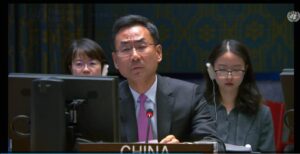A study ordered by the Ministry of Economy, Planning and Development (Mepyd) has revealed a alarming trend in the public perception of the corruption in the Dominican Republic. Despite the change of government in 2020, which initially renewed the trust In the political system, the tolerance to corrupt practices has increased significantly.
The Survey of Democratic Culture (ECD) shows that the percentage of people willing to “tolerate some degree of corruption if the problems are resolved” grew from 48.3% in April 2022 to 50.9% in April 2023. This increase suggests a dangerous standardization of the corruption in Dominican society.
Factors socioeconomic influence this tolerance. The survey reveals that people with lower educational level and lower incomes tend to be more permissive with the corruption if they feel that their needs are being met. For example, 52.2% of those who only completed primary school would justify corrupt practices if problems were resolved.
This attitude poses serious challenges for the integrity democratic and the rule of law in the country. The Minister of Economy, Pavel Isa Contreras, He acknowledged the seriousness of the situation, reaffirming the government’s commitment to address these challenges in culture. policy Dominican.
The growing tolerance to the corruptionespecially when perceived as a means of solving problems, underscores the urgent need to strengthen civic education, improve government transparency and promote a culture of integrity at all levels of Dominican society.
The ECD reports that this tolerance It can be higher or lower depending on the population group in question. For example, the more educated the person is, the more likely he or she is to disapprove of corruption even if the authorities are efficient.
Presenting the results, Contreras He indicated that this evil is a point of concern and that by exposing them the government’s commitment to improving the quality of life is reaffirmed. policy public.
“I think what this does is reinforce the government’s commitment to address the challenges that this survey is showing, that we still have in culture. policy“, he reiterated.
Justification of clientelism
Although the change of government in 2020 renewed the levels of trust In the political system, the Mepyd study shows a increase in beliefthat there is more corruption in public institutions and those who justify clientelist activities.
The results of the first ECD in the Dominican Republic (ECD), released yesterday, show that from 2022 to 2023 the population that considers that the corruption is greater in state agencies.
Of the two thousand people surveyed, around a third (31.7%) perceive that the misuse or abuse of public power in these entities has decreased.
The tolerance towards these activities shows high levels of flexibility, according to the research. Although this is a situation that should not be allowed in democratic societies, corruption can be supported if certain conditions are met.
The number of people who “could tolerate some degree of corruption “if the problems are solved”, rose from 48.3% in April 2022 to 50.9% in April 2023. By November 2022, the majority still preferred to reject this idea, however, in the following five months the result changed.
The Presidency: the one they trust the most
In contrast to this reality, the Presidency represents the institution that Dominicans trust the most.
For a total of 10 political institutions, the results show a low trust in national democratic bodies, with the exception of the President of the Republic, who has more than a third of citizens who trust “a lot” or “somewhat” in his work.
Population justifies the clientelism
He clientelism has been on the rise since 2021 in the Dominican Republic, according to data from the Institute of Democracy of the Americas (V-Dem), a problem that is also distinguished in the results of the ECD.
Most people support or normalize clientelist activities. For example, when asked: “If a family member or close friend wins a political office, should I help him or her get a government job or a public contract?”, 66.6% agreed.
Along these lines, 80.4% are in favor of being granted a job or public contract if he worked on the campaign. policy of the winner of an elected office.
He clientelism It also has a significant impact on the elections. Responses to this national survey indicate that nearly half of the population feels committed to politicians who help them financially.
“Thirdly, we found that 47.8% of the people surveyed said they would feel obliged to vote in the next elections. elections by a politician who gives them financial aid or does an important favor for them or a family member… The fact that nearly half of the population links their vote to the aid they receive on an individual basis also limits the programmatic or value debate that is presupposed in the democratic system,” the report states.
The study points out that this situation creates a vicious circle of clientelism between the rulers and the citizens, and that “it is the government’s job to break it in order to convert favors into rights, improve the quality of public employees and ensure equal access to state services regardless of affiliation.” policy“.
Discrimination and latent inequality
Dominican society has gained a lot of ground in terms of equalityHowever, there are still large gaps in various sectors.
Although it is believed that women have equal opportunities to participate in policy53.7% of Dominicans are more inspired by trust a man to give his vote to.
The option of both equally (which would be the least prejudiced response) only obtained 15% support.
If the approval of the minority rightsWhen applying for public office, there are disapproval levels of 83.8% for an atheist person, 59.3% for a Dominican of Haitian descent and 52.4% for a man or woman of Haitian descent.homosexuals.
The stake policy increases
The ECD shows very favorable results in terms of democracy and stake of citizens in political activities.
Contrary to the global trend of declining party membership, 22.7% of citizens in the Dominican Republic claim to be members of a political party.
Similarly, 57.1% said that democracy is always preferable to other forms of government. Although this is the majority, 32.7% are indifferent to the prevailing system or would prefer an undemocratic structure under certain conditions.
The most important concerns of those consulted on these issues were the rule of law and the equality social.
Only three out of 10 Dominicans can say that they trust people somewhat or a lot. The Mepyd survey reveals that, on average, 68.9% believe that most people are not very trustworthy or trustworthy at all.
In its report, the institution raises the need to reverse these indicators since “societies where interpersonal trust is widespread achieve a high degree of commitment and social cohesion, a product of the expansion of informal norms that favor the production of public goods.”




